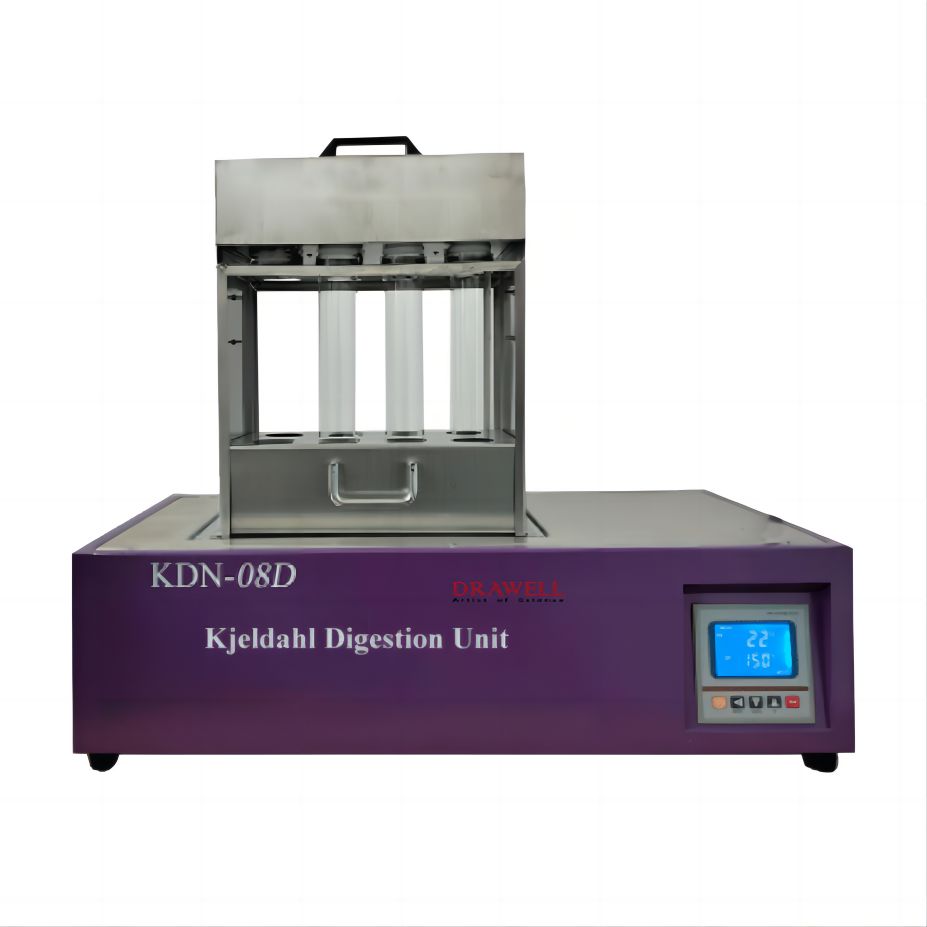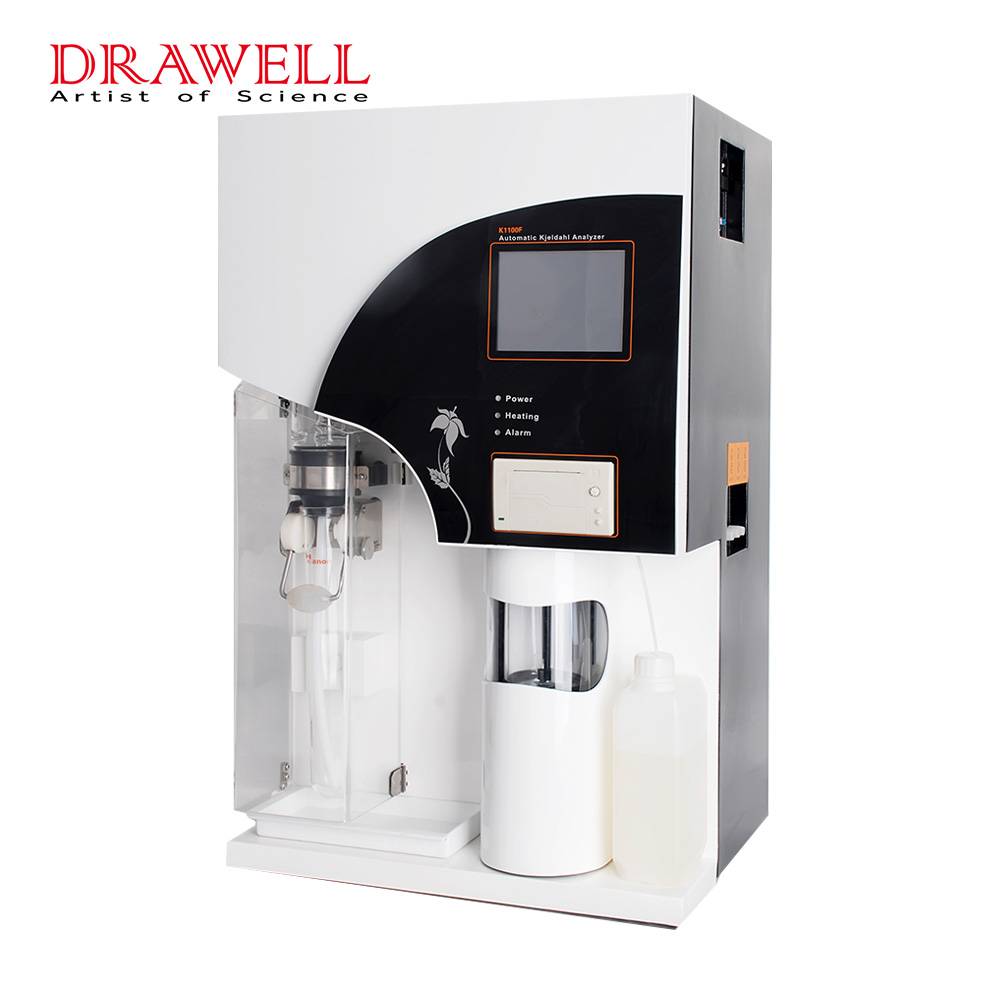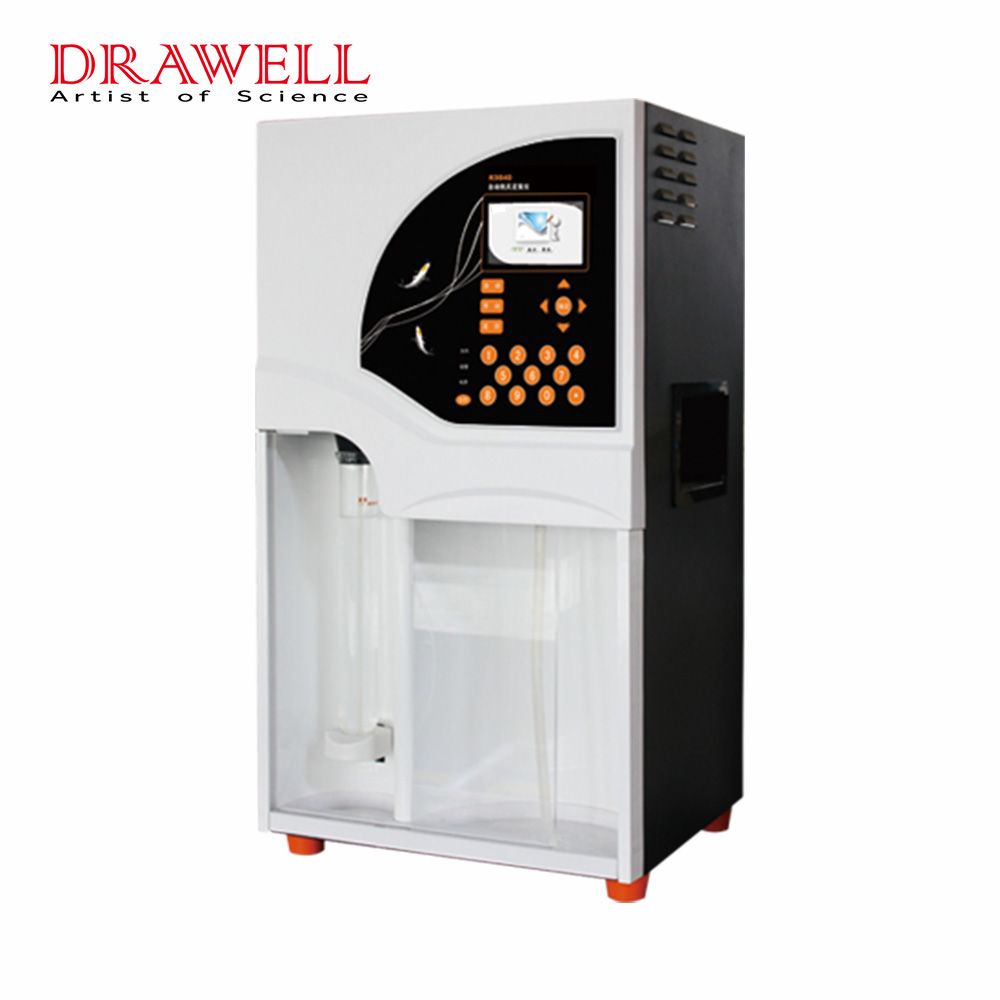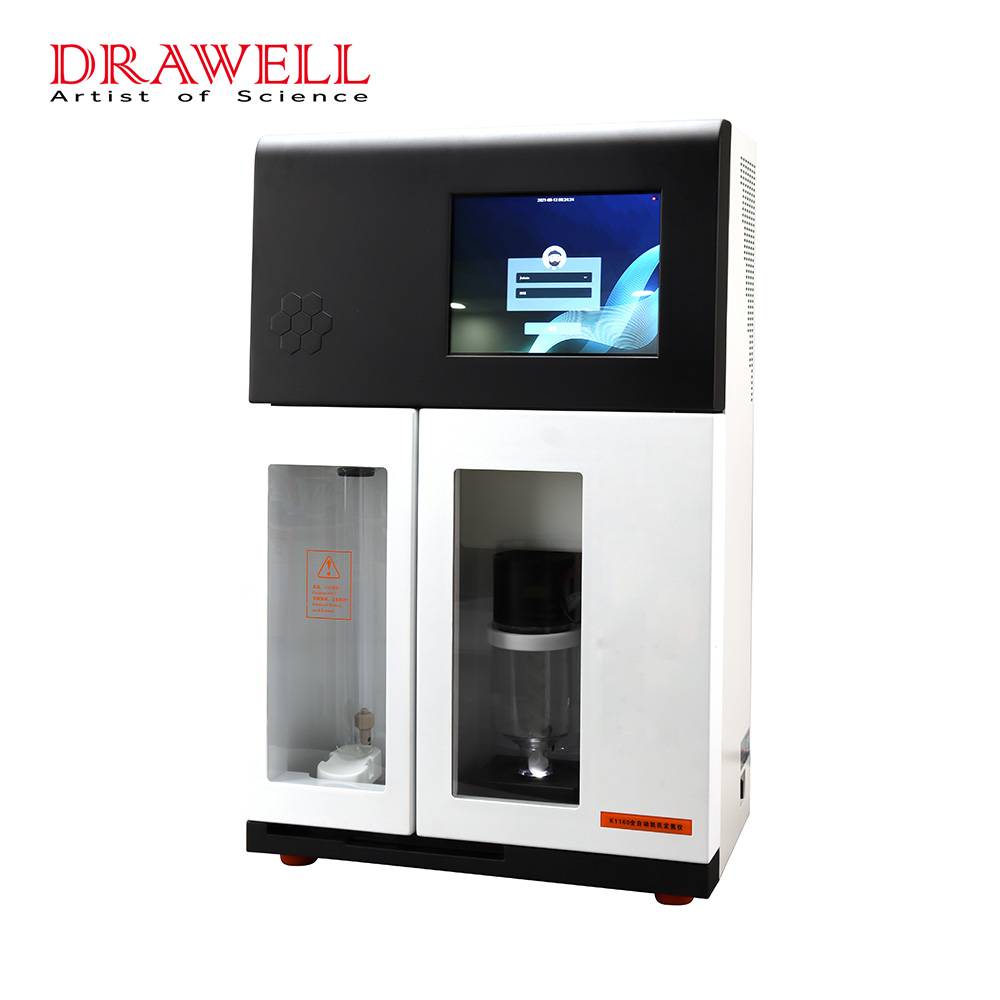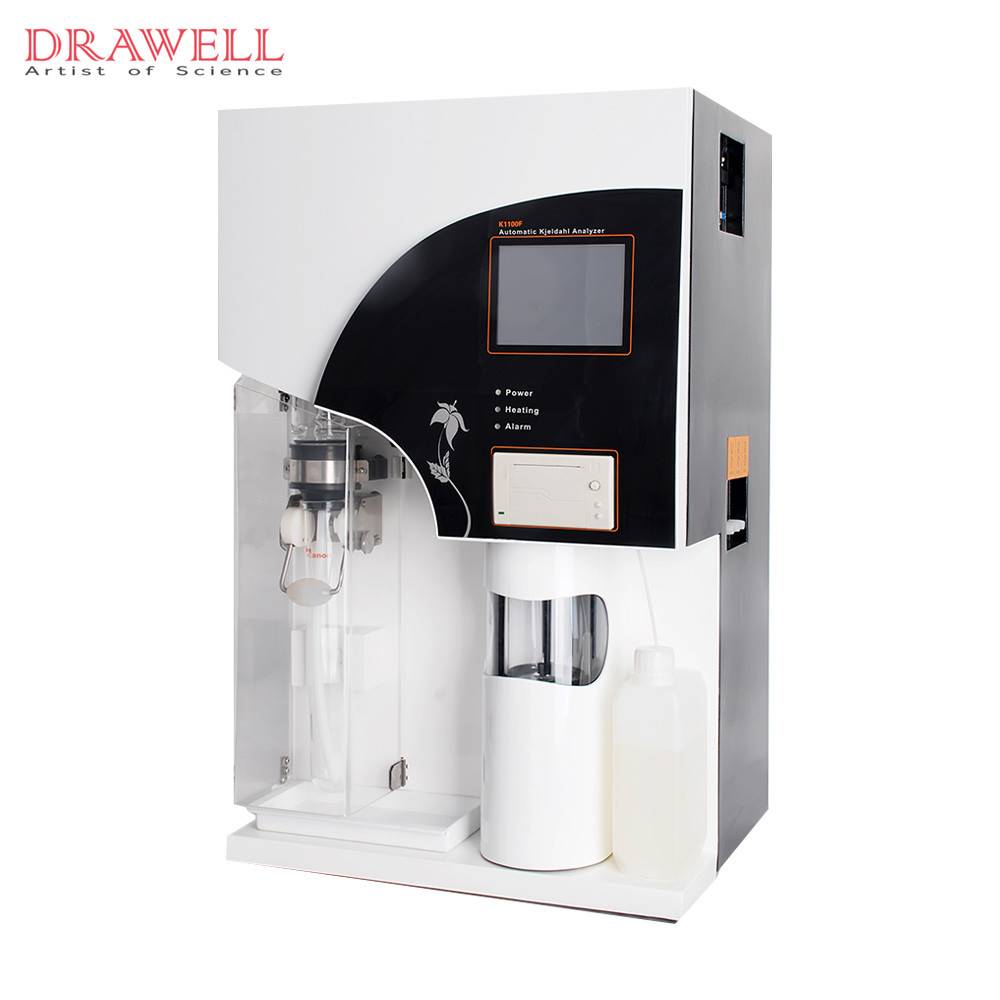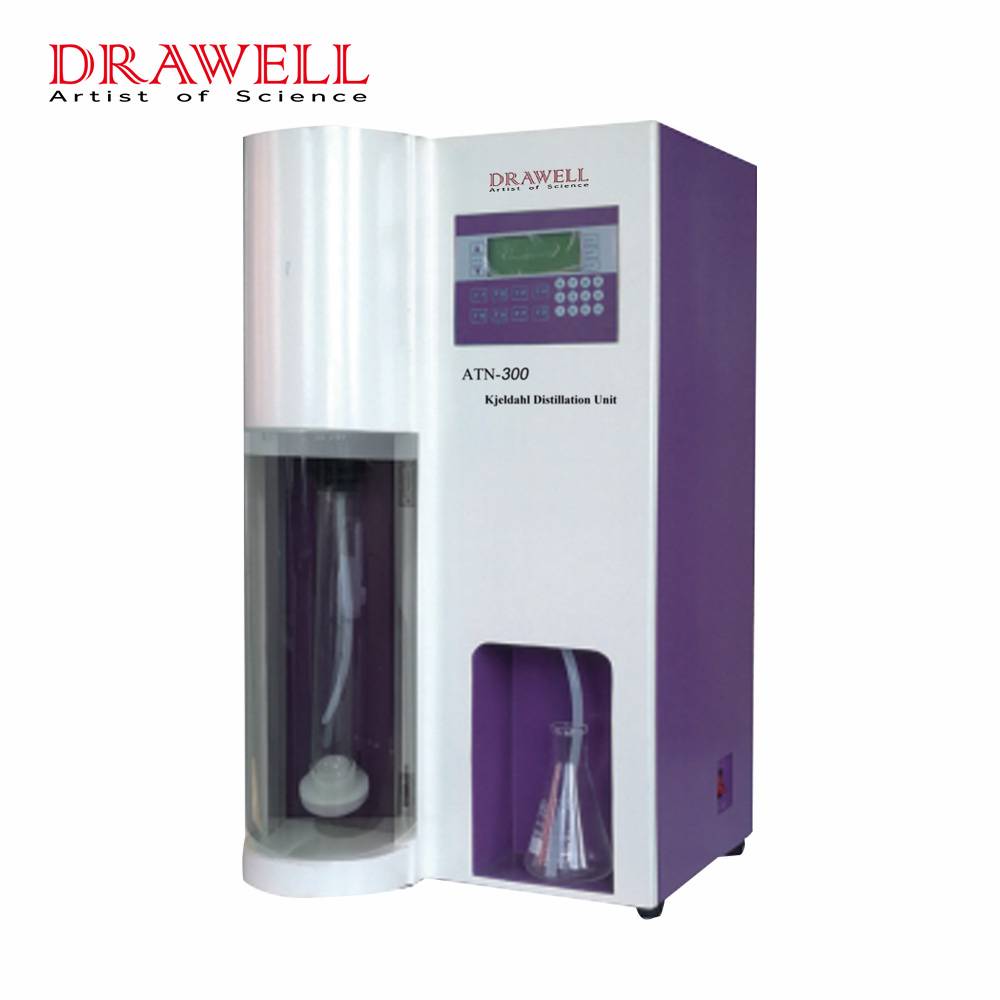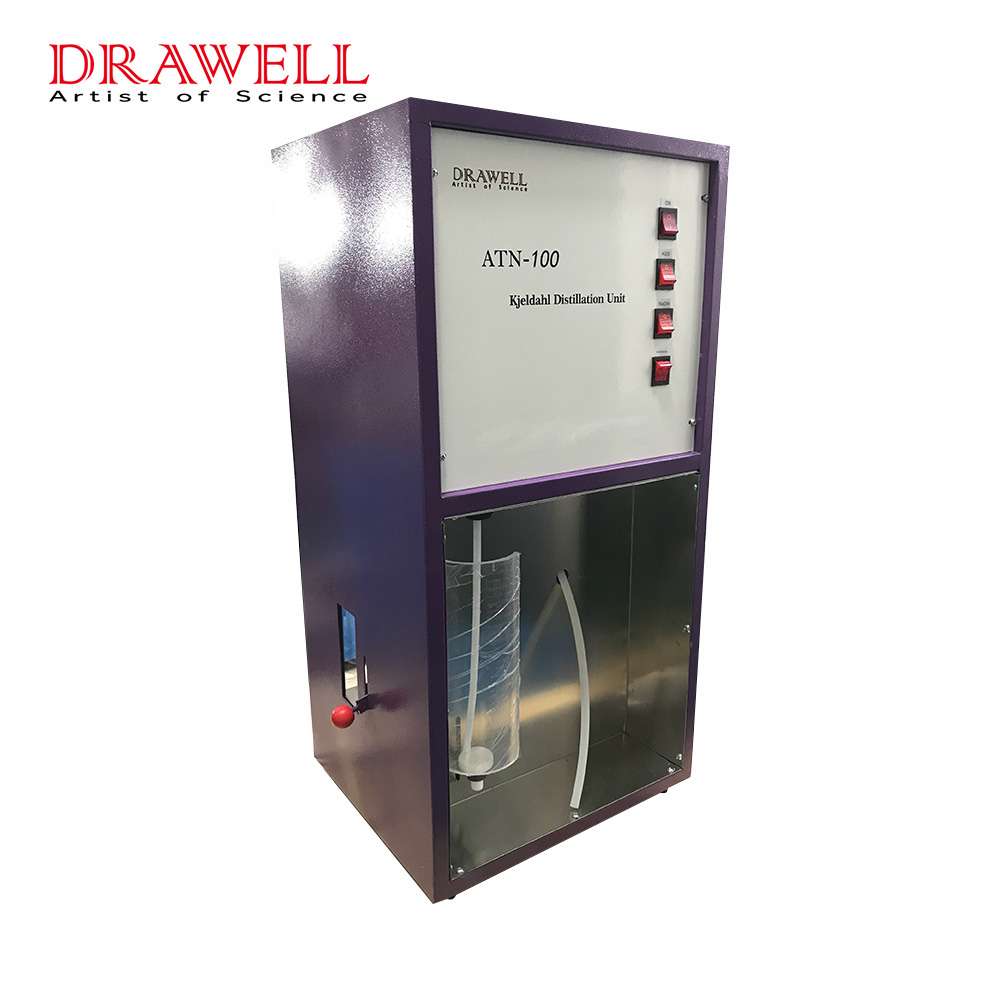Automatic Kjeldahl analyzers are laboratory instruments used to determine the nitrogen content of samples. They are based on the Kjeldahl method, which was developed by Johan Kjeldahl in 1883. The Kjeldahl method involves digesting the sample with sulfuric acid and a catalyst to convert all of the nitrogen in the sample to ammonium sulfate. The ammonium sulfate is then distilled and titrated to determine the nitrogen content of the sample. There are many types of Automatic Kjeldahl analyzers and here we will explore what are their different types and how to choose the proper one for your needs.
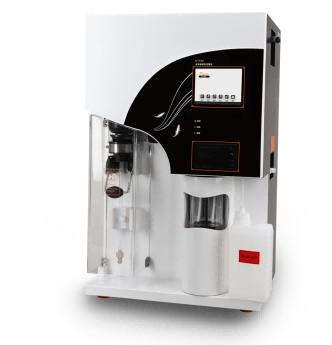
Types of Automatic Kjeldahl Analyzers
Automatic Kjeldahl analyzers can be classified in a number of ways, including:
By level of automation:
- Fully automated Kjeldahl analyzers perform all of the steps of the Kjeldahl digestion and distillation process automatically, including sample weighing, digestion, distillation, titration, and calculation of results.
- Semi-automated Kjeldahl analyzers require some manual intervention, such as sample weighing and loading of the digestion tubes. However, they still automate many of the steps of the Kjeldahl process, such as digestion, distillation, and titration.
By type of sample to be analyzed:
- Automated Kjeldahl nitrogen analyzers are specifically designed to measure the nitrogen content of samples. These analyzers are typically used in food and feed testing, environmental monitoring, and agricultural research.
- Automated Kjeldahl protein analyzers are specifically designed to measure the protein content of samples. These analyzers are typically used in food and feed testing, quality control, and research.
- Automated Kjeldahl analyzers for digesting specific types of samples, such as soils, plants, and animal tissues. These analyzers are typically used in specialized laboratories and research institutions.
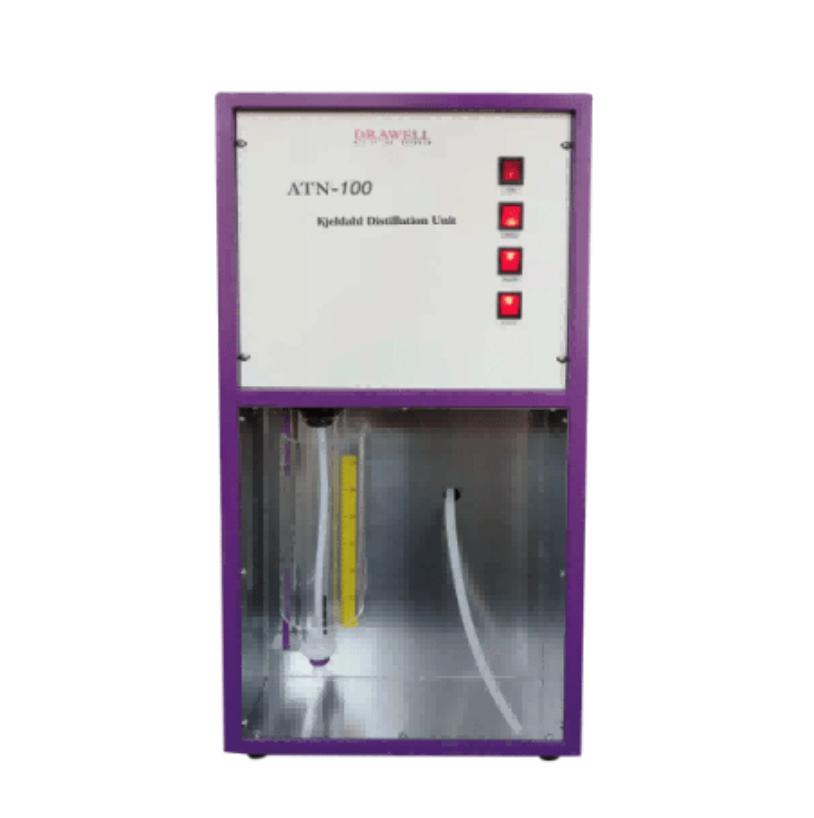
Factors to Consider for Choosing the Proper Automatic Kjeldahl Analyzers?
When choosing an automatic Kjeldahl analyzer, it is important to consider the following factors:
- The type of samples to be analyzed: Different types of samples require different digestion conditions and analytical methods. Some analyzers are specifically designed for certain types of samples, such as food and feed, soil, or plant tissues.
- The desired throughput: If you need to analyze a large number of samples on a regular basis, you will need an analyzer with a high throughput.
- The budget: Automatic Kjeldahl analyzers can range in price from a few thousand dollars to tens of thousands of dollars. It is important to set a budget before you start shopping so that you can narrow down your options.
- The level of automation required: If you have limited staff or time, you may want to consider a fully automated analyzer. Semi-automated analyzers may be a good option if you need to save money or have more control over the analytical process.
- The features and functionality that are important to you: Some analyzers have additional features such as the ability to perform multiple analyses simultaneously, the ability to connect to a computer, and the ability to generate reports. Consider which features are important to you and choose an analyzer that has them.
Once you have chosen an automatic Kjeldahl analyzer, it is important to follow the manufacturer’s instructions carefully. This will help you to get the most accurate and precise results from your analyses.

Conclusion
Automatic Kjeldahl analyzers are an essential tool for many laboratories, offering a number of advantages over manual methods, including accuracy, precision, speed, efficiency, safety, and ease of use. It also used in other industries, such as pharmaceuticals, textiles, and petrochemicals. In order to choose the best automatic Kjeldahl analyzer for your needs, it is also important to choose an analyzer from a reputable manufacturer with a good track record of customer service and support.

